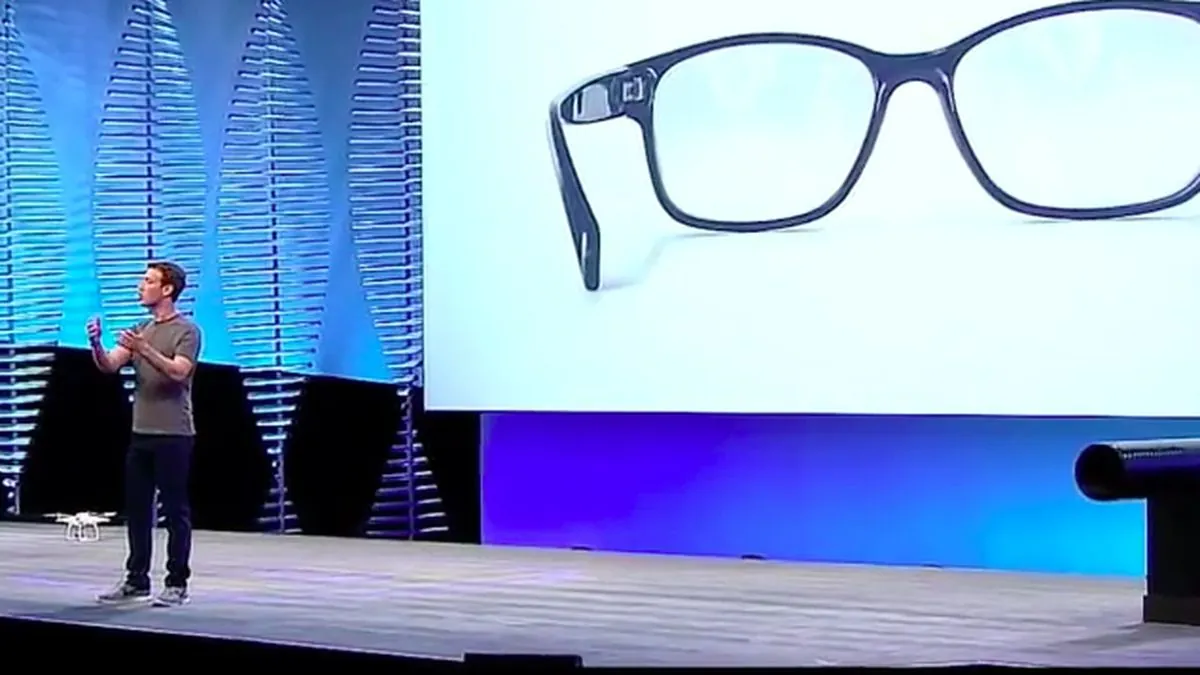Zuckerberg Unveils Futuristic AR Glasses, Likens Self to Roman Emperor
Meta CEO Mark Zuckerberg introduced Orion, advanced AR smart glasses, at the company's annual conference. The launch showcased Meta's commitment to AI and future technologies, despite relying heavily on ad revenue.

At Meta's annual conference in Menlo Park, California, Mark Zuckerberg unveiled the company's latest technological marvel: Orion, a pair of augmented reality (AR) smart glasses. The event, held on September 26, 2024, marked a significant milestone in Meta's journey towards shaping the future of human-computer interaction.
Zuckerberg's choice of attire drew attention, as he sported a t-shirt bearing the phrase "Aut Zuck aut nihil," a play on the Latin expression "Aut Caesar aut nihil." This comparison to Roman emperors underscored the CEO's ambitious vision for Meta's role in the tech landscape.

The Orion glasses represent a leap forward in AR technology, weighing less than 100 grams and offering features like live language translation and video dubbing. Zuckerberg emphasized the technical challenges overcome in their development, stating:
"A lot of people have said this is the craziest technology they've ever seen. The technical challenges to make them are insane."
These glasses incorporate a neural interface, allowing users to control the device through brain signals via a wristband. This advancement builds on decades of research, considering that the concept of augmented reality was first introduced in 1968 by Ivan Sutherland.
Meta's focus on AI and future technologies was evident throughout the presentation. The company introduced celebrity voice interactions for Meta AI, featuring voices of Judi Dench and John Cena. This development aligns with Zuckerberg's belief that voice will become a more natural way of interacting with AI than text.
The event also highlighted Meta's AI progress, with the company reporting 500 million users for its AI services. This growth reflects the increasing importance of AI in Meta's strategy, building on its establishment of the Facebook AI Research (FAIR) lab in 2013.
Despite these technological advancements, Meta continues to rely heavily on advertising revenue. In its most recent quarter, 98% of the company's income came from ads. This financial model supports Meta's substantial investments in AI and AR technologies, which Zuckerberg sees as the next generation of computing platforms.
As Meta celebrates its 20th year since its founding in 2004, the company's trajectory from a social networking site to a leader in AR and AI technologies is clear. The global AR and VR market, projected to reach $454.73 billion by 2030, presents significant opportunities for Meta's future growth.
Zuckerberg's vision for Meta extends beyond current technologies, embracing the concept of the metaverse – a term coined by Neal Stephenson in 1992. This focus on creating more open, accessible, and natural human connections through technology continues to drive Meta's innovation efforts.
As the company moves forward, the balance between its traditional revenue sources and investments in futuristic technologies will be crucial. The success of products like Orion and the continued development of AI capabilities will likely shape Meta's role in the evolving digital landscape.


































